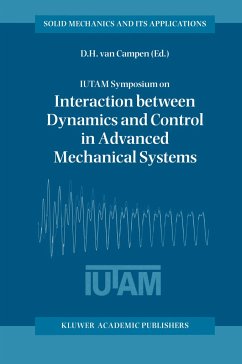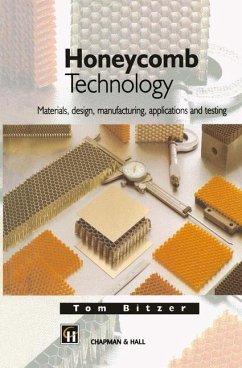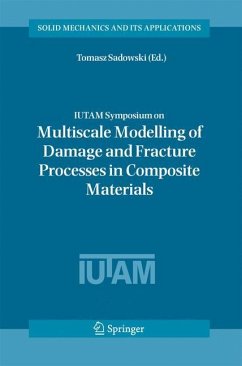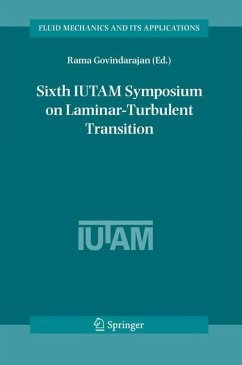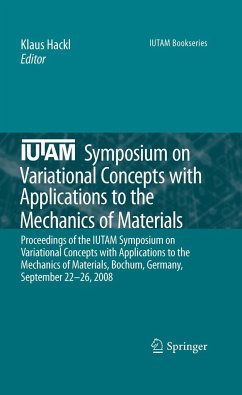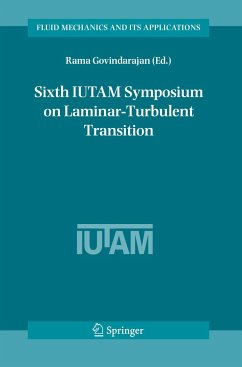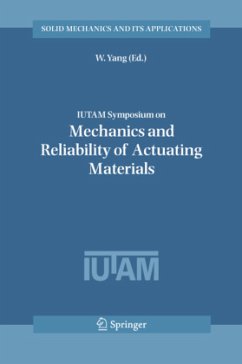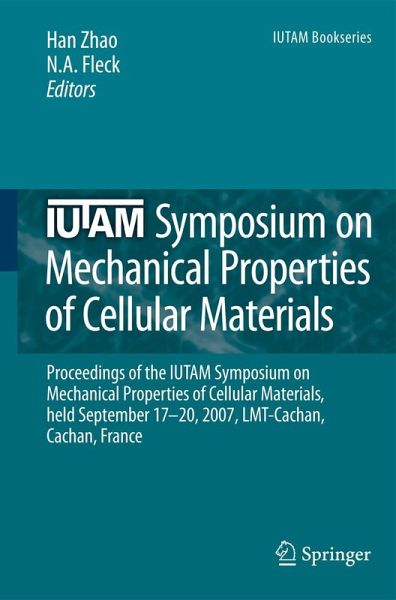
IUTAM Symposium on Mechanical Properties of Cellular Materials
Proceedings of the IUTAM Symposium on Mechanical Properties of Cellular Materials, held September 17-20, 2007, LMT-Cachan, Cachan, France
Herausgegeben: Zhao, Han; Fleck, N.A.
Versandkostenfrei!
Versandfertig in 6-10 Tagen
76,99 €
inkl. MwSt.

PAYBACK Punkte
38 °P sammeln!
Solid cellular materials (foams, lattice materials, honeycombs, etc.) are attractive and have resulted in the creation of an active subject for structural, mechanical and material scientists in recent years. Indeed, constant progress in the manufacturing techniques are improving their properties and reducing their costs; and mass productions and industrial applications are beginning. An important mechanical problem is how to characterize and model the mechanical behaviour of these materials, which is necessary for industrial design and numerical predictions involved in various applications suc...
Solid cellular materials (foams, lattice materials, honeycombs, etc.) are attractive and have resulted in the creation of an active subject for structural, mechanical and material scientists in recent years. Indeed, constant progress in the manufacturing techniques are improving their properties and reducing their costs; and mass productions and industrial applications are beginning. An important mechanical problem is how to characterize and model the mechanical behaviour of these materials, which is necessary for industrial design and numerical predictions involved in various applications such as light weight structures, energy absorbers.
This volume contains twenty-two contributions written by distinguished invited speakers from all part of the world to the iutam symposium on mechanical properties of cellular materials. It provides a survey on recent advances in the characterisation and modeling of the mechanical properties of solid cellular materials under static and dynamic loading as well as their applications in lightweight structures analysis and design. This volume will be of interest to structural, mechanical and material scientists and engineers working on different aspects of this new class of materials (for example in microstructure observation, micromechanical and multiscale modeling, phenomenological models, structural impact behaviour and numerical validation).
This volume contains twenty-two contributions written by distinguished invited speakers from all part of the world to the iutam symposium on mechanical properties of cellular materials. It provides a survey on recent advances in the characterisation and modeling of the mechanical properties of solid cellular materials under static and dynamic loading as well as their applications in lightweight structures analysis and design. This volume will be of interest to structural, mechanical and material scientists and engineers working on different aspects of this new class of materials (for example in microstructure observation, micromechanical and multiscale modeling, phenomenological models, structural impact behaviour and numerical validation).





